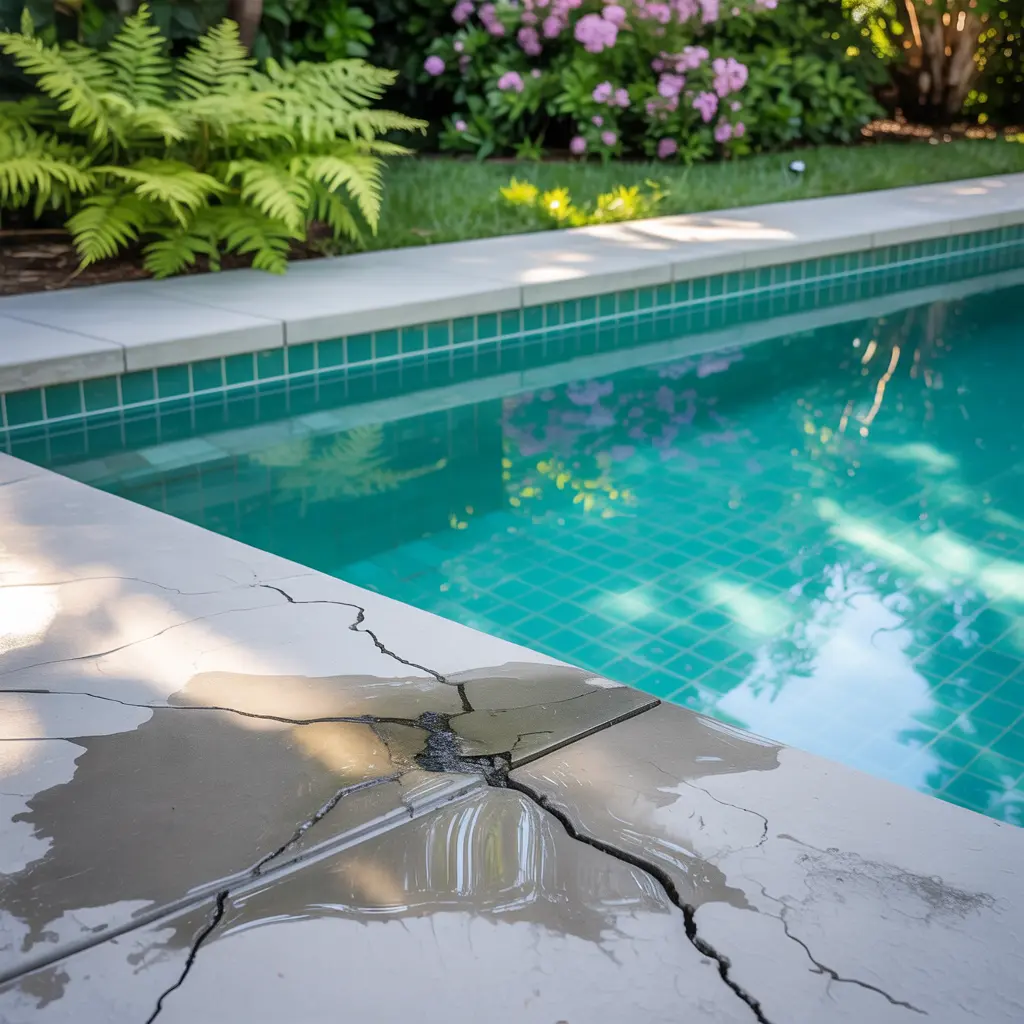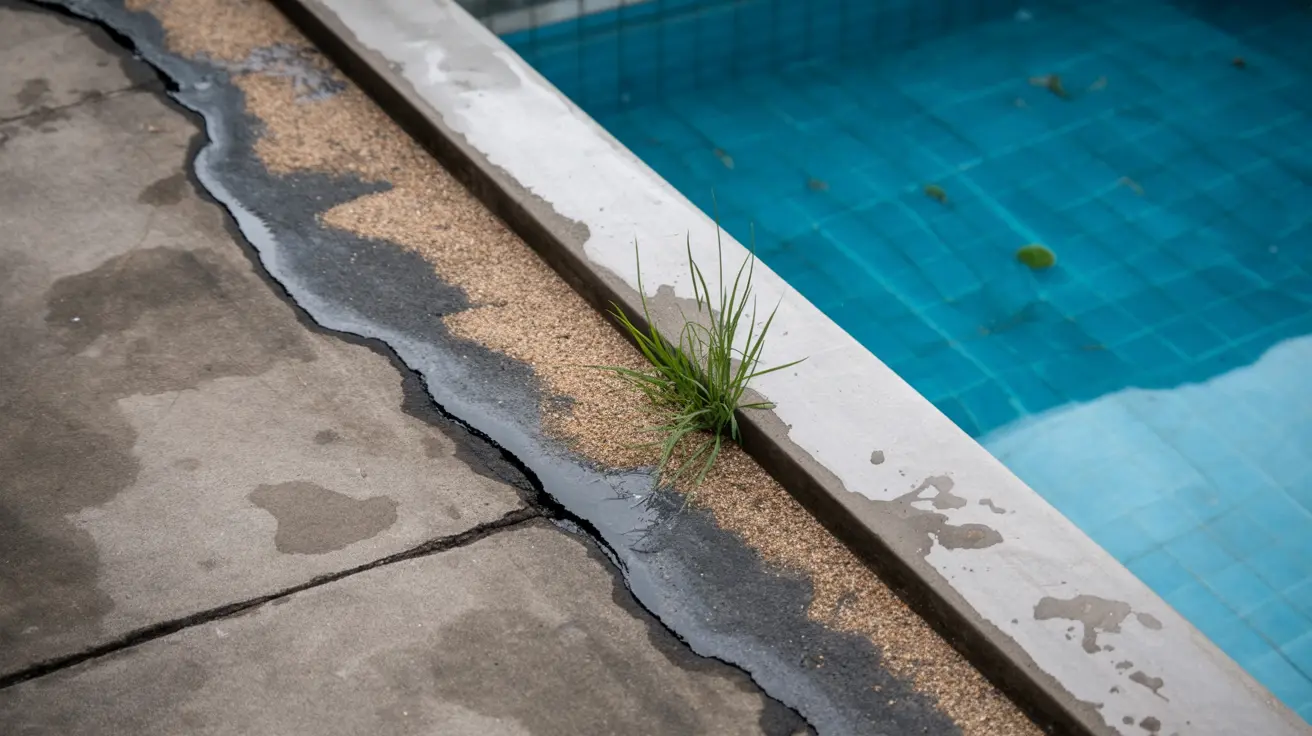Have you noticed your pool losing water and wondered if it's due to evaporation or a leak? Pool evaporation is a common cause of water loss, but how much water actually evaporates from a pool each day? In this article, we'll dive into the science behind pool water evaporation and share tips for determining if your pool is losing water due to evaporation or a leak.
How Much Water Evaporates from a Pool?
On average, a swimming pool can lose about 1/4 inch to 1/2 inch of water per day due to evaporation. For a typical 20,000-gallon pool, that means 2,500 to 5,000 gallons of pool water can evaporate in a single year! The exact amount of water loss depends on several factors, including:
- Air temperature and humidity levels
- Pool water temperature
- Surface area of the pool
- Wind speed over the pool surface
- Use of water features like fountains or waterfalls
What Causes Pool Water Evaporation?
Evaporation occurs when liquid water transforms into water vapor and escapes into the air. This happens when water molecules gain enough energy from the surrounding air to break free from the liquid state. Several factors influence the rate of pool water evaporation:
- High temperatures: Warmer air can hold more moisture, so pool water evaporates faster on hot days.
- Low humidity: When the air is dry, it can absorb more moisture from the pool surface.
- Wind: Breezes across the pool surface speed up evaporation by replacing the humid air directly above the water with drier air.
- Pool surface area: Larger pools have more surface area exposed to air, resulting in higher evaporation rates.
Is It Normal for Pool Water to Evaporate Overnight?
Yes, it's perfectly normal for pools to experience evaporation overnight, especially in hot weather. In fact, most evaporation occurs at night when the air is cooler than the pool water. As the warm water releases heat and moisture into the night air, you may notice a slight drop in the pool's water level by morning.
How Much Water Should a Pool Lose Due to Evaporation?
While losing 1/4 to 1/2 inch of water per day is typical, the exact amount varies based on your location and weather conditions. In hot, dry climates like Texas, pools can lose up to 1 inch of water each day due to evaporation alone. To determine your pool's normal evaporation rate, try this simple "bucket test":
- Fill a bucket with pool water and mark the water level.
- Place the bucket next to the pool, ensuring it's exposed to the same conditions.
- After 24 hours, compare the water level in the bucket to your pool level.
- If the pool level dropped significantly more than the bucket water, you may have a leak.

How Can I Tell If My Pool Is Losing Water from Evaporation or a Leak?
To determine whether your pool is losing water due to evaporation or a leak, monitor your pool's water level closely. If you're consistently losing more than 1/4 inch of water per day, or if you notice the water level dropping even when a bucket of water next to the pool doesn't, you likely have a leak. Other signs of a pool leak include:
- Wet spots or soggy soil around your pool
- Cracks or damage to the pool surface or deck
- Air or dirt blown into the pool from the return lines
- Constantly running automatic pool filler
If you suspect a leak, contact a professional leak detection specialist to pinpoint the source and repair the issue promptly.
What Can I Do to Reduce Pool Water Evaporation?
While you can't completely stop pool water evaporation, there are several ways to minimize water loss:
- Use a pool cover: Pool covers act as a barrier between the water surface and the air, reducing evaporation by up to 95%. Safety covers, solar covers, and liquid pool covers are all effective options.
- Lower the pool temperature: Heated pools evaporate faster, so keeping your water temperature in check can help reduce evaporation.
- Add windbreaks: Strategically placed plants, fences, or privacy screens around your pool can reduce wind-driven evaporation.
- Turn off water features: Fountains, waterfalls, and other features increase the pool's surface area and exposure to air, leading to higher evaporation rates.

How Often Should I Need to Add Water to My Pool?
The frequency of adding water to your pool depends on your pool's evaporation rate and whether you have a leak. As a general rule, if you're adding more than 2 inches of water per week, you likely have a leak that needs to be addressed. Keep in mind that factors like pool parties, splashing, and backwashing your filter can also contribute to water loss.
Can a Pool Leak Cause Health Problems?
While a pool leak itself doesn't directly cause health issues, it can lead to problems if left unaddressed. Leaks can cause your pool's chemical balance to fluctuate, potentially leading to skin and eye irritation or even algae growth. Additionally, leaks in the pool deck or surrounding soil can create slip hazards and attract pests. Promptly fixing leaks helps maintain a safe, healthy swimming environment.
When Should I Call a Professional About My Pool Losing Water?
If you suspect your pool is losing more water than normal due to evaporation, or if you notice signs of a leak, it's best to call a professional leak detection specialist. They have the tools and expertise to quickly identify and repair leaks, saving you time, money, and water in the long run. Plus, addressing leaks early can prevent more serious damage to your pool and surrounding structures.
Key Takeaways
- Pool water evaporation is a normal process influenced by factors like temperature, humidity, wind, and pool surface area.
- On average, pools lose 1/4 to 1/2 inch of water per day due to evaporation, but this can vary based on location and weather conditions.
- To determine if your pool is losing water from evaporation or a leak, monitor water levels closely and perform a bucket test.
- Minimize evaporation by using pool covers, lowering water temperature, adding windbreaks, and turning off water features.
- If you suspect a leak or excessive water loss, contact a professional leak detection specialist to identify and repair the issue promptly.
By understanding the science behind pool water evaporation and taking steps to minimize water loss, you can keep your pool in top shape and enjoy a worry-free swimming season. And if you do suspect a leak, remember that the original leak detection specialists at AquaVision Leak Detection in College Station, Texas, are here to help!

.webp)


.webp)

